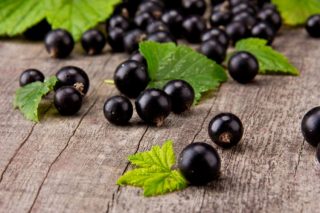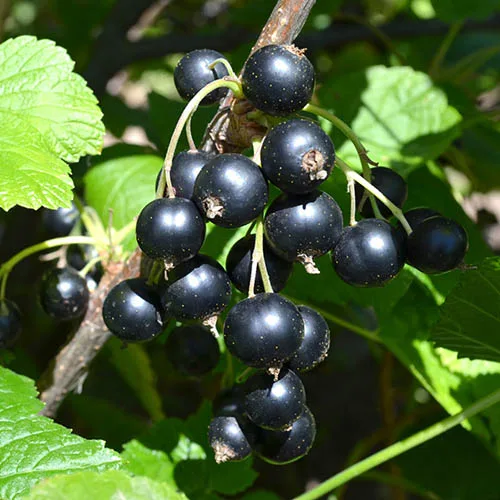Blackcurrants have a beneficial effect on post-meal glucose response. The required portion size is much smaller than previously thought. A new study from the University of Eastern Finland shows that also when consumed with sugar, blackcurrants are not as unhealthy as sugar consumed without them.
Balance glucose response
Blackcurrants have a beneficial effect on the blood glucose response after a meal. They balance the glucose response of ingested sugar by attenuating its rise and delaying its fall. The effect is likely associated with berry-derived polyphenolic compounds, anthocyanins, which are rich in blackcurrants.
Beneficial health impact
The beneficial health effect of blackcurrants was supported by a recent study conducted at the University of Eastern Finland. In the clinical meal study (Maqua) the beneficial effect on postprandial glucose response was achieved by 75 g (1.5 dL) of blackcurrant. This is a remarkably smaller portion size than in earlier studies. Blackcurrants are often consumed with added sugar because of their natural sourness, which may be a cause of concern for health-conscious consumers. However, it seems that sugar consumed with blackcurrants is not as unhealthy as sugar consumed without berries.
The study was a collaboration between the Institute of Public Health and Clinical Nutrition at the University of Eastern Finland and Savonia University of Applied Sciences by utilizing the regional Food Valley ecosystem.
Berries are an important component of a healthy diet
Berries are an important component of a healthy diet. They are rich in vitamins, minerals, dietary fiber, and polyphenols. So far, however, the EU has not authorized health claims for berries. In recent years, there have been many studies monitoring the effects of berries on glucose metabolism. Dark berries, such as blackcurrant and bilberry, had the most convincing results. Black-coloured berries, rich in anthocyanins, seem to attenuate the blood glucose response to added sugar, compared to a control product having the same amount of sugar. The same effect is demonstrated by anthocyanins extracted from blackcurrants. Polyphenolic compounds may slow down the absorption of glucose from the small intestine by interacting with carbohydrate-digesting enzymes and glucose transport proteins. In addition, polyphenolic compounds may reduce oxidative stress and inflammation.
 The study
The study
26 healthy participants (22 female, 4 male) consumed three different test products and sugar water as a control product at four separate study visits. The test products were:
- a blackcurrant purée with added sugar
- blackcurrant product containing fermented quinoa
- a blackcurrant product base without blackcurrants
Each of them and the control product contained 31 g of available carbohydrates. They also had a similar composition of sugar components. Blood samples were taken before the meals in fasting state. Samples were also taken post-prandially in 15, 30, 45, 60, 90, 120, and 180 minutes after consuming the meal. The samples were analyzed for glucose, insulin, and free fatty acids.
Beneficial blackcurrants
Compared to sugary water, both blackcurrant products had attenuated postprandial glycaemic response. This was seen in reduced maximum glucose and insulin, delayed fall of glucose, and delayed rise of free fatty acids because of hypoglycaemia. The effect was enhanced for the blackcurrant product because of the innovative product base. The results support earlier findings on the beneficial effects of blackcurrants on blood glucose response after a meal, showing the effect with smaller portion size. Over a longer period of time, smaller variations in blood glucose and insulin levels, and improved insulin sensitivity, may decrease the risk of type 2 diabetes.
The bottom line
Blackcurrants are an interesting raw material for the food industry because of their high content of anthocyanins and easy availability. Blackcurrants have potential for being developed into new healthy and tasty products.





![women [longevity live]](https://longevitylive.com/wp-content/uploads/2020/01/photo-of-women-walking-down-the-street-1116984-100x100.jpg)









